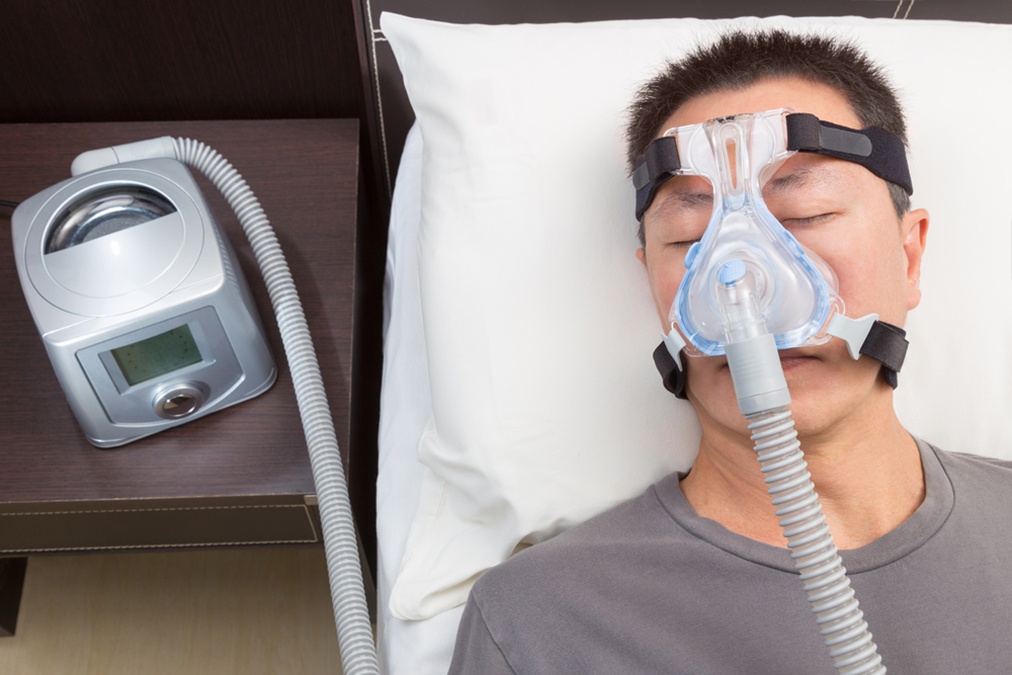 Sleep apnea is notoriously difficult to self-diagnose since you are, by definition, not awake when the breathing pauses occur.
Sleep apnea is notoriously difficult to self-diagnose since you are, by definition, not awake when the breathing pauses occur.
Similarly, snoring is often associated with sleep apnea but it’s not a clear diagnosis.
Researchers have always believed that daytime sleepiness is one of sleep apnea’s most common symptoms, and that this can serve as an indication that you might be a sufferer.
But a new study in the Journal Chest has now proven that it actually is not a symptom of sleep apnea at all.
Instead, there are three other factors that clearly indicate that you suffer sleep apnea.
The researchers wanted to compare short sleep duration and sleep apnea and their effects on diabetes, cardiovascular health, daytime sleepiness, and anxiety and depressive symptoms. This was to see which was actually responsible for the worst consequences.
They collected the medical data of 2,064 Brazilian adults who had participated in the Brazilian Longitudinal Study of Adult Health. This included a full medical examination, home sleep monitoring, a motor movement sensor to measure rest and activity, and a sleep questionnaire.
The participants were classified as having sleep apnea if they experienced more than 15 breathing pauses per hour, and as having a short sleep duration if they slept an average of fewer than six hours per 24-hour day.
32.9 percent of them suffered from sleep apnea and 27.2 percent were short sleepers. Compared to their peers, the short sleepers were found to be 44 percent more likely to struggle with daytime sleepiness.
However, the most surprising finding was that people with sleep apnea were not more likely to be sleepy during the day, as originally thought by most scientists and medical practitioners.
While they did find that people with sleep apnea were 10% more likely than the other participants to be sleepy during the day, this finding was not statistically significant, which meant that the researchers could not rule out that the daytime sleepiness occurred randomly rather than being a direct cause of sleep apnea.
One of the causes of this lack of statistical significance may have been that participants had to rate their own daytime sleepiness on a questionnaire. It is possible that some people who were only slightly sleepy might have reported themselves as sleepy, while others with mild sleepiness would have rated themselves as fine.
Regarding the other symptoms, people with sleep apnea were found to be worse off than short sleepers were.
Compared to people without sleep apnea, people with this sleep breathing disorder were 3.9 times more likely to be obese, 31 percent more likely to have high blood pressure and 24 percent more likely to have high cholesterol or other fats in their blood.
However, Short sleeping did not have an effect on these three health indicators. This is somewhat surprising, as many previous studies have linked short sleeping with obesity and these heart problems.
Yet, the conclusions of this study may have differed from previous studies because they did not require participants to rate their own sleep duration on a questionnaire, instead opting to test for it objectively via a wrist-worn device.

 Overcoming IBD
Overcoming IBD Multiple Sclerosis
Multiple Sclerosis Banishing Bronchitis
Banishing Bronchitis Gum Disease Gone
Gum Disease Gone Overcoming Onychomycosis
Overcoming Onychomycosis Neuropathy No More
Neuropathy No More The Prostate Protocol
The Prostate Protocol Brain Booster
Brain Booster
 Ironbound
Ironbound
 Solution for Shingles
Solution for Shingles
 The Bone Density Solution
The Bone Density Solution
 The Ultimate Healing Protocol
The Ultimate Healing Protocol
 The Parkinson's Protocol
The Parkinson's Protocol
 The Chronic Kidney Disease Solution
The Chronic Kidney Disease Solution
 Overthrowing Anxiety
Overthrowing Anxiety The Fatty Liver Solution
The Fatty Liver Solution The Hypothyroidism Solution
The Hypothyroidism Solution
 The End of Gout
The End of Gout The Blood Pressure Program
The Blood Pressure Program
 The Oxigized Cholesterol Strategy
The Oxigized Cholesterol Strategy
 Stop Snoring And Sleep Apnea Program
Stop Snoring And Sleep Apnea Program
 The Arthritis Strategy
The Arthritis Strategy The Vertigo & Dizziness Program
The Vertigo & Dizziness Program The 3-Step Diabetes Strategy
The 3-Step Diabetes Strategy Hemorrhoids Healing Protocol
Hemorrhoids Healing Protocol The Erectile Dysfunction Master
The Erectile Dysfunction Master Weight Loss Breeze
Weight Loss Breeze The IBS Program
The IBS Program The Insomnia Program
The Insomnia Program The Migraine and Headache Program
The Migraine and Headache Program The Neck Pain Solution
The Neck Pain Solution The Menopause Solution
The Menopause Solution The Ejaculation Master
The Ejaculation Master The TMJ Solution
The TMJ Solution The Acid Reflux Solution
The Acid Reflux Solution The Fibromyalgia Solution
The Fibromyalgia Solution The Psoriasis Strategy
The Psoriasis Strategy